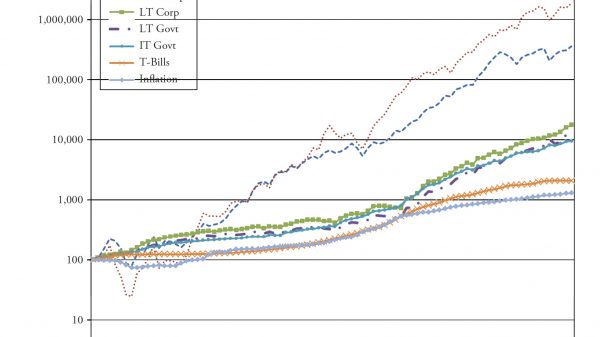Jennifer J. Schulp and Jack Solowey
What do Yankees tickets and Pokémon cards have in common? If you guessed wish list items for elementary school kids, you wouldn’t be wrong. But another thing they share is that Securities and Exchange Commission (SEC) Chairman Gary Gensler has been asked to opine on whether they are securities during congressional testimony.
To most people, the answer to that question seems easy: Pokémon cards aren’t traded on the New York Stock Exchange—and neither are Yankees tickets—so they must be different from securities like Walmart or Tesla stock, right? That’s hardly a technical analysis (and decidedly not legal advice), but it reveals a piece of common sense underlying our intuitions about securities laws: If we buy something that has some use—even if we hope that it may become more valuable—it is usually not treated as a security subject to all of the rules and regulations that go along with offering and trading investment assets.
But, in yet another example of Gensler’s expansive view of SEC jurisdiction, his answers to Rep. Ritchie Torres (D‑NY) on whether items like Pokémon cards and baseball tickets are securities were not definitive and seemed to rest on an incoherent theory that takes into account whether the assets are in some way stored on a blockchain. That doesn’t sound like the “technology neutral� regulator the SEC claims to be.
Unfortunately, this isn’t just the idle musing of an agency head dreaming of enlarging its fiefdom. The SEC has settled several actions asserting that NFTs (i.e., non-fungible tokens) granting holders certain rights to digital art and exclusive restaurant access were unregistered securities. (The SEC has also issued a Wells Notice, indicating that it intends to file an enforcement action, against a platform that facilitates NFT trading.)
The stated rationale for these actions is that purchasers of the NFTs were led to expect profits when the token appreciated in value based on the efforts of the NFT issuer. In the Commission’s view, this ostensibly meets the criteria set out by the Supreme Court for when something qualifies as an investment contract subject to SEC jurisdiction. But as SEC Commissioner Mary Uyeda has noted, considering “any item sold whose value is based on the efforts of others� to be a security “would appear to scope in many common transactions in the non-digital world, including pre-purchase commitments, collectibles, art, and land.� That’s exactly what the SEC appears to be doing.
NFTs are unique digital tokens that typically are employed to represent (though not necessarily legally confer) ownership of a physical or digital asset. NFTs and cryptocurrencies use the same underlying blockchain technology, but they differ in important respects, most notably in that cryptocurrencies are fungible—meaning that two units of the same cryptocurrency are interchangeable—whereas NFTs are not.
While in one sense NFTs can be thought of as assets themselves, they also can be thought of as something like “certificates of authenticity� that provide a way of verifying that the NFT holder has an ownership claim, access right, or connection to another asset or file that the NFT is linked to (such as a piece of art, digital content, or membership pass). However, the legal rights of a token holder, such as intellectual property and other ownership rights, cannot be assumed based on possession of the token alone and may require reference to additional off-chain legal frameworks.
NFTs can serve a variety of functions, such as representing ownership of real-world or digital assets like art, facilitating benefits like access to a real-world or digital social club or automated royalty payments, or eligibility for discounts associated with customer loyalty rewards, to name a few. Buyers of NFTs may want to collect them, receive the benefits associated with them, or speculate that their future value may rise.
But the fact that someone buys something in hopes that it will appreciate—like a Pokémon card collector or reseller of Yankee playoff tickets—does not turn the item into a security. Where an item has a use unconnected to its appreciation in value, as many NFTs do, it’s even easier to see this because a purchaser may not intend to use the item as an investment.
The securities laws evolved in no small part to address the risks posed to investors by a managerial body’s ability to possess information that investors do not and that body’s capacity to act at odds with investors’ best interests. Yet, as SEC Commissioners Hester Peirce and Mark Uyeda recognized when dissenting from the Commission’s settlement with Flyfish Club, LLC—which offered NFTs that granted holders access to its restaurant—this type of securities analysis is “inapt because holders of Flyfish NFTs had a reasonable expectation of obtaining wonderful culinary experience and other exclusive member experiences based on the managerial and entrepreneurial efforts of Flyfish and its principals. Whether their expectations will be met should not be judged by a securities regulator� (emphasis added).
The SEC claims to be looking at the “economic reality� of the NFT offering to determine that it falls within the securities laws. But as Commissioners Peirce and Uyeda remarked when dissenting from the settlement with Stoner Cats 2, LLC, which sold NFTs connected to digital art (of stoned cats): “The Stoner Cats NFT purchasers received what they paid for—a still image of a character from the series, access to all six episodes of the Stoner Cat series, and the excitement of being part of a popular phenomenon.� This economic reality isn’t enough to bring a project within the SEC’s jurisdiction because, if it was, every sale of fine art would fall within the SEC’s purview—something that the SEC has acknowledged is not the case.
That’s not to say that NFTs can never fall within the ambit of the securities laws but rather that it is far from a given that any particular NFT does. The SEC’s jurisdictional grabs—from collectibles to digital art markets to social club memberships—deter artists and other creatives from experimenting with methods to monetize their work. Uncertainty about whether they will face an SEC investigation may chill experimentation, in part by prohibitively raising costs related to legal counsel (or more proactively, for taking legal action against the SEC for clarity).
Recently, Rep. William Timmons (R‑SC) floated legislation, the “New Frontiers in Technology Act,� seeking to exclude NFTs that relate to works of art, collectibles, loyalty points, and tickets (among other things) from coverage under the securities laws. Whether as a result of legislation or otherwise, though, the SEC needs to walk back from its untenable position that anything purchased that may rise in value is a security—a position that needs to be revised not only for NFTs but for technological innovation more broadly.











